Stephanie M.
I'm a content writer and novelist who loves books, writing, theater, and my cat. I have published two novels and traveled to London and Paris.
Columnist III
- Plebian Penman
- Common Writer
- Aristocratic Author
- Noble Scribe
- Lurker
- Pssst
- Hand Raiser
- Vocal
- Outspoken
- Extrovert
- Center of Attention
- Forms a Crowd
- Sharp-Eyed Citizen
- Town Watch
- Detective Deskman
- Penman Patrol
- Forensic Fiend
- Motivational Columnist
- Motherboard
- Composition
- Literary Art
- Referencer
- Actor
- Successful Pilot
- Animator
- Animaniac
- Well Read
- Chaptered Mind
- Art Collector
- Article of the Month
- ?
- Articles
40 - Featured
36 - Comments
711
- Ext. Comments
338 - Processed
191 - Revisions
188
- Topics
81 - Topics Taken
5 - Notes
248
- Topics Proc.
81 - Topics Rev.
19
- Points
13314 - Rank
4 - Score
9140
Latest Articles
Latest Topics
The Blending of Christianity and HorrorThe most recent horror film on Hollywood's docket is Prey for the Devil, which concerns Sister Ann. This devout nun wants to be an exorcist and would be great at it, but her training school accepts only men. Yet Sister Ann may be the only one who can help the patients in the school's attached hospital for the possessed, including a ten-year-old girl. The blending of Christianity and horror in this film is by turns respectful to the Church and seems to encourage audiences to explore, if not root for, the demonic. It's a conundrum found in many similar films, such as The Exorcist and The Nun. The question is why this blend comes up so often, and especially why the Catholic Church is presented on the front lines in this murky battle between good and evil (they aren't always on the "good" side). Are these portrayals as balanced as they could and arguably should be? How can or should horror films stay true to their genre, while portraying Christians or perhaps people of other faiths, as those who would protect or save innocents from the demonic? What do these films say about spiritual battle lines in real life? Discuss.
|
Analyzing the Nostalgic '90s Sports FilmThe '90s is fairly famous for several family-oriented, nostalgic sports films. From Angels in the Outfield to the Mighty Ducks trilogy, from the Air Bud franchise to Like Mike, Miracle, and Space Jam, during the decade, these films seemed to be everywhere. At the time, they were lauded as feel-good films the whole family could enjoy, particularly dads and uncles who might be moved to tears by memories of their former glories on the field or court. In the ensuing decades, these films are still respected, but also maligned as corny or overly inspirational depending on who you ask. Analyze the impact of the nostalgic sports film. Why did '90s audiences seem to need so many of them, and why did they all seem to have such an inspirational format? Did they cater to a specific audience with a specific set of beliefs or aspirations? Were they meant to? Are they seen as overly nostalgic now simply because audiences have changed, or do we get our "heart" and "inspiration" in different ways? If the latter, where do we get it? Can the family-oriented, nostalgic sports film make a comeback? If so, what should it look like? |
The Impact of Thug NotesOn June 3, 2013, comedian and actor Greg Edwards began a series of web videos called Thug Notes. Using the persona Sparky Sweets, Ph.D., Edwards summarized and analyzed classic novels using a mix of modern language and "street slang" (e.g., a character who is murdered is "iced" or "murked," a hard-working character is said to be "hustlin'.") Thug Notes' mix of humor, slang, and absolute respect for classic literature helped the series carve a unique niche in the world of web and educational videos. Each video has garnered a plethora of views, and the series' popularity has encouraged viewers to read or reread books that might not have felt accessible before (many "newer" videos contain a promotion that begins, "Hey, get the book!" followed by a web address at which to do so). Discuss the impact of Thug Notes, using any of these or other elements. You might choose to discuss favorite episodes, or compare and contrast certain episodes. Also, discuss whether Thug Notes, which has not posted new content in a while, would be an acceptable platform for discussions of more contemporary literature, particularly that which is currently under censorship. Discuss whether a series similar to Thug Notes would work for other subjects. For instance, could there be a Thug Notes-style series for math? History? Theatrical productions?
|
September 11 in the ArtsSeptember 11, 2001 changed the world as we know it. Mere weeks after the terrorist attack that destroyed the Twin Towers, artists from all mediums responded to the tragedy with forms of self-expression that gave themselves and their consumers safe, multifaceted outlets to express their complex emotions. September 11 is now the subject of everything from hard-hitting documentaries and touching memoirs to gentle, yet serious episodes of kids' shows and perhaps controversial country-western songs. Analyze and discuss some of your favorite, or least favorite, tributes to September 11 within the arts. What makes these tributes powerful, or conversely, disturbing or controversial? Which pieces do the best job of honoring the 9/11 survivors and victims? Do we need more 9/11 pieces, and if so, what should their focus and goals be? Can new pieces be tied into more current tragedies, historical ones, or a mix of the two?
|
YouTube Kids: Harmless or Dangerous?In past decades, children got their television "diet" from specific shows on specific channels, or program blocks on one or two channels tailored for them. Today, our children have an endless list of shows to choose from thanks to streaming services and 24-7 content. One example of such content is YouTube Kids, a network of channels that are given new content daily, sometimes several times daily. Some of this content is positive, but just as much if not more is allegedly detrimental to kids. Writer and artist James Bridle, for instance, gave a TED Talk for YouTube that, while three years old, has 4.8M views. His TED Talk posits that YouTube kids is actually dangerous to kids' mental health and development. Examine this TED Talk as well as other sources, such as the Momo controversy from the late 2010s, or certain shows and videos on YTK. What content is the most detrimental, and why? Is there anything parents, guardians, and tech experts could do to make content more educational and child-friendly? Perhaps most importantly, what exactly is the draw of YTK, and why do so many adults welcome its content, questionable or not? Discuss.
|
The Appeal of Wednesday AddamsThe original Addams Family series graced our televisions in the 1960s. The show was already an adaptation of Charles Addams' successful comic strip, but has since spawned a series remake, a cartoon, two live-action movies, one animated movie, and a musical. Netflix is now set to stream yet another addition to the Addams canon. However, this one is a bit different, in that it focuses mainly on daughter Wednesday. This makes sense, as Wednesday seems to be one of the family's more popular members. But, why is she? Does this have to do with Christina Ricci's treatment of her in the live-action films? Is it her personality, or a way she stands out in her already unusual family? Explore these or other facets of Wednesday and her popularity. You might also consider comparing/contrasting Wednesday with similar unconventional female characters, to see whether they have or haven't achieved Wednesday's popularity.
|
Phoenix's Role in Top Gun: MaverickTop Gun: Maverick finally hit theaters after a pandemic-induced delay. The film is filled with nostalgia for fans of the original, and also carries some new material with a distinct 21st-century feel for its newest generation of fans. One such instance of this material is female pilot Phoenix, played by Monica Barbaro. In an interview, Barbaro stated that she enjoys Phoenix's character, particularly that she is not a love interest for anyone, and that she is one of Maverick's top co-pilots during the central mission. However, she is still the lone female pilot with any significant dialogue or character development in the film. Is this realistic considering the type of films the Top Gun franchise contains? Is Phoenix still a good representation of females in male-dominated fields, particularly the military? How would the movie have been different had she had more screen time? Discuss.
|
The Changing Relevance of Judy BlumeA film version of the classic and often banned Judy Blume novel Are You There, God? It's Me, Margaret, is scheduled to hit theaters September 6, 2022. Not much is known about the plot itself, which raises a lot of questions. For instance, when the original book was published in the 1970s, it was unusual for children to be raised without religious affiliation, as Margaret is. Will this be the case for a Margaret of 2022? Will a 21st-century Margaret's explorations of puberty be treated as scandalous? These and other questions bring up just how relevant Judy Blume's coming-of-age story, as well as her other stories, such as the Fudge series, Blubber, and Deenie, still are. Millennial adults who grew up with them still consider Blume's books classics and have introduced their own kids to them, and some Gen Z kids still read and enjoy them. However, Judy Blume doesn't seem like quite the gold standard of coming-of-age stories she once was. Her plots don't read as "cutting edge" because they're not as controversial anymore. You could call them downright tame. Blume is definitely still relevant, but the question has become, just how relevant is she? In the case of Blume and her books, what does "relevant" mean? How is she similar to or different from today's hottest middle-grade and young adult authors, and can she maintain her place as a classic author, or will her books eventually lapse into obscurity? Discuss. |
Latest Comments
| Analyzing Rodgers and Hammerstein's Female Leads | |
Mary’s uncle locked the garden because it was his wife’s favorite place, and a special place for the two of them to be together. Thus, when she died, he couldn’t bear to keep it open. Some adaptations, such as the 1993 film, add that she died in the garden, such as through premature labor with Colin. However, that wasn’t in the original book. | Mary Lennox’s Healing Journey In The Secret Garden |
Indeed, the world will never be the same without Maggie Smith. (She had incredible range. The first role I ever saw her in was Mrs. Medlock and I thought she was deliciously scary. When I saw her as McGonagall years later, I could hardly believe how far apart the roles seemed, and yet how perfect she was). | Mary Lennox’s Healing Journey In The Secret Garden |
Aw, you have a great dad! The Secret Garden is one of my “comfort movies” as well. | Mary Lennox’s Healing Journey In The Secret Garden |
I thought about pets as I was reading your comment, too. Funny, isn’t it, how we often end up needing them more than they need us (at least, it was that way with my cat). I’ve noticed a similar trope between people in certain stories, too. For instance, some stories have a lonely or bitter adult who “warms up” after becoming a child’s guardian (ex., Heidi, Annie). Of course, with our modern understanding of guardianship and foster parenting, this doesn’t always “work,” either in real life or modern fiction. I mean, it’s never a kid’s responsibility to solve an adult’s problems. But if that adult is a generally levelheaded person who has the capacity for love and kindness, who can recognize that the kid is, well, a kid, it can still work on a smaller scale. | Mary Lennox’s Healing Journey In The Secret Garden |
Yes, and that’s what I love about it! When I was Mary’s age, one of my fantasies involved finding and tending my own secret garden. Never mind the fact I had nothing even close to a green thumb. 🙂 | Mary Lennox’s Healing Journey In The Secret Garden |
So glad to see this made the lineup! The Secret Garden was one of my favorite books as a kid, and I grew up with both the 1993 and 1975 versions (my grandma had a copy of the latter). Looking back as an adult, I love how the 1993 version especially shows Mary’s growth in tandem with the garden’s. For instance, she starts off wearing almost exclusively black, her hair is lank and has no luster, and her face is unhealthfully pale. But as the film progresses, she gains weight and color, her hair gains volume, and her costumes become more colorful. Her ending costume, for instance, is a lacy white dress with a pale blue sash and trim, and she’s wearing ribbons with her hair down in a style appropriate for a ten-year-old, rather than looking pinched and “beyond her years” in a bad way. | Mary Lennox’s Healing Journey In The Secret Garden |
Great job condensing such a rich, multifaceted topic into so many easy-to-understand, digestible parts! Extra kudos points for the title (I love the idea of books and movies as part of an “enchanting alchemy,” not as adversaries) and your images. (I rarely see Coraline with her as-intended blue hair, and she looks lovely). | Beyond the Page: Navigating the Enchanting Realm of Book-to-Movie Alchemy |
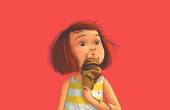
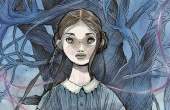
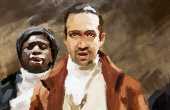

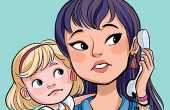


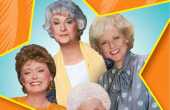
Glad to hear it. Even as a kid, I bristled at the idea that musicals had no substance. Of course, I didn’t have the vocabulary to explain why I felt as I did back then. But as someone who grew up to be a writer, I always felt drawn to the stories and characters, and how the songs worked to tell the stories.